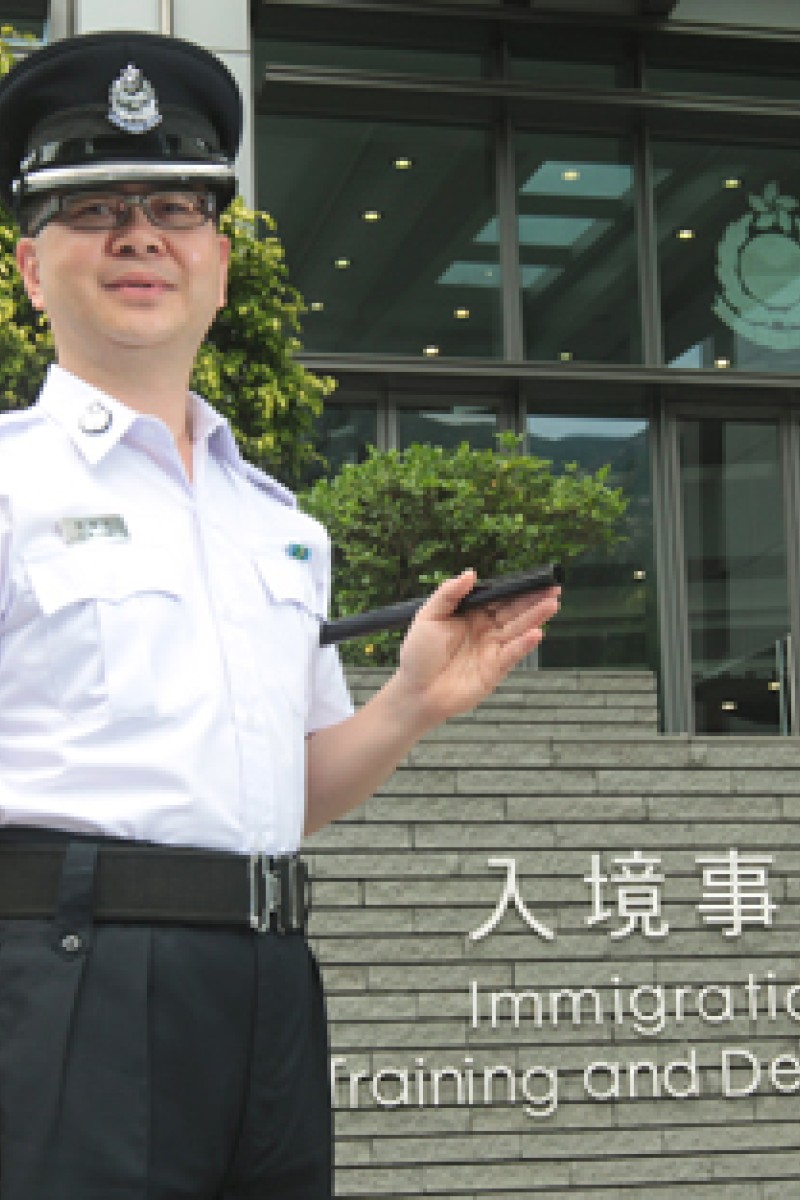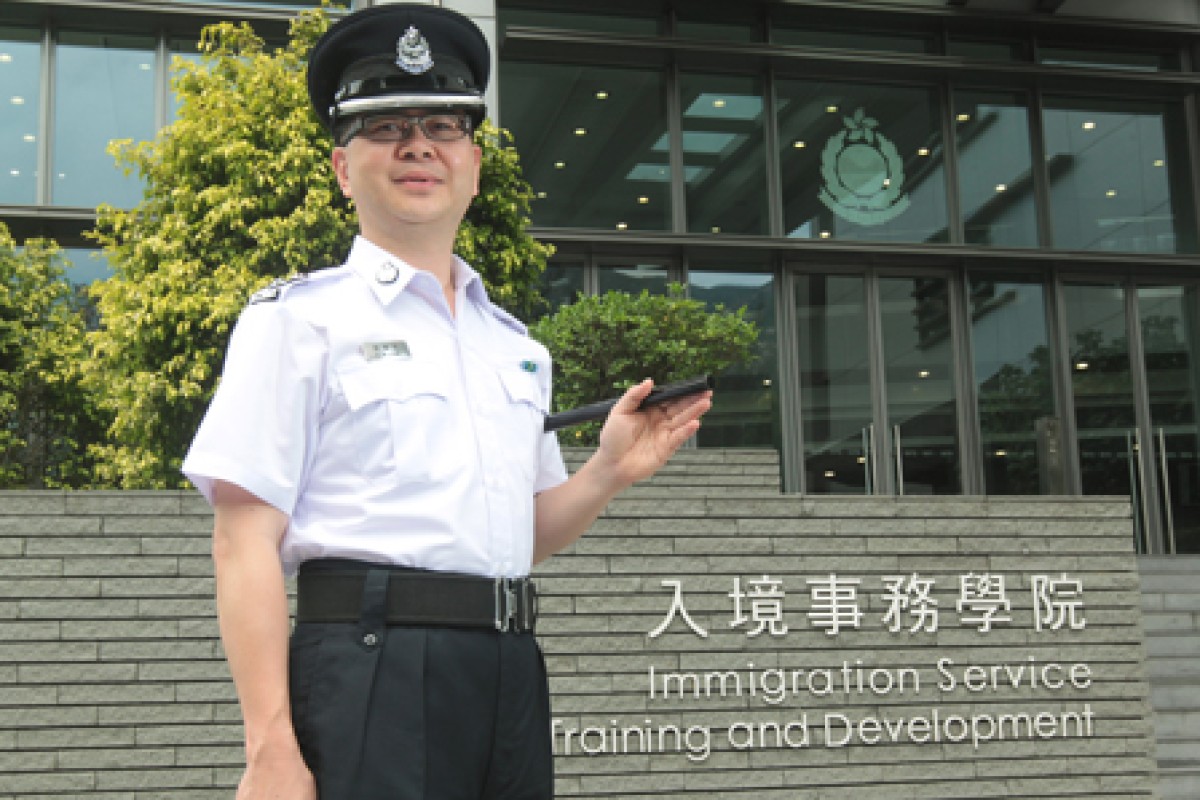
Well in control of your future
 Immigration officer Law Chun-nam says people skills are vital for the job, because you meet hundreds of visitors and residents every day.
Immigration officer Law Chun-nam says people skills are vital for the job, because you meet hundreds of visitors and residents every day.Requirements
Communication and interpersonal skills are the top qualities Law Chun-nam looks for in an immigration officer because it is a people's job. An officer faces hundreds of visitors and residents every day, for example, working at border control points or processing torture-claim cases at headquarters.
Law says good interpersonal skills can be crucial, for instance, when trying to calm down an angry visitor whose visa has been rejected. Immigration officers should help the person understand the reasons behind their decision, and what can be done about it.
Thousands of visitors enter or leave Hong Kong every day. So it takes good skills to notice forged documents, and an analytical mind to spot suspicious people.
Officers need strong leadership skills. At the visa-assessment office, the team can be as large as 30, while there are around 10 officers in the section that takes people to court.
Qualifications
An immigration officer must have a bachelor's degree in any subject and pass the Common Recruitment Examination. New recruits have to undergo a 25-week induction programme at the Immigration Service Institute of Training and Development.
The programme covers all aspects of immigration operations - from basic law and immigration policy to leadership skills and staff management. During training, the newcomers are sent to work in different departments.
Work prospects
The Immigration Department is divided into six main branches: Control; Enforcement and Torture Claim Assessment; Information Systems; Management and Support; Personal Documentation; and Visa and Policies. New staff work in two or three positions, each lasting about 12 months, during their three-year probation period. Law says the rotation allows them to have more exposure to the department's operations.
Law has been with the Immigration Department for 27 years. He started off as an assistant at the control points in Lo Wu and the airport. He describes that branch as a Shaolin monastery where you meet all sorts of people, from illegal workers to foreign helpers, and face tricky situations. Then he joined the prosecution team to tackle immigration offences like fake marriages. Later, he had to handle more administrative duties and complex tasks including torture claims. Now Law heads the institute and is in charge of staff training and career development.
Long-term prospects
As they move up the career ladder, immigration officers take up more management and administrative roles, like Law. They can be promoted to senior immigration officer, then chief immigration officer, and principal immigration officer.
Training does not stop once you graduate from the institute. Even after working for several years, you may have to attend a training programme to enhance your skills.
Outstanding staff may go to the mainland or overseas on exchange programmes. Law studied management in Chicago, in the United States, last year, while some of his colleagues worked at the Charles de Gaulle international airport in Paris, France.
Pay
Immigration officers can expect to start between HK$24,185 and HK$27,305 per month, depending on their academic qualifications.
How to apply
After you send your application form to the Immigration Department, there is an extensive assessment process. The first step is a written exam, followed by a physical fitness test, interview, an extended written exam and a final interview.
A day at work
Take immigration officers at the Hong Kong International Airport for example. They work 44 hours every week. They do shifts, except for logistics and administrative support.
Their duty roster mainly depends on the flow of visitors. At managerial level, they supervise immigration assistants to ensure a smooth operation at counters, and check on suspicious visitors and travel documents.
Some officers are responsible for overall surveillance at the airport.